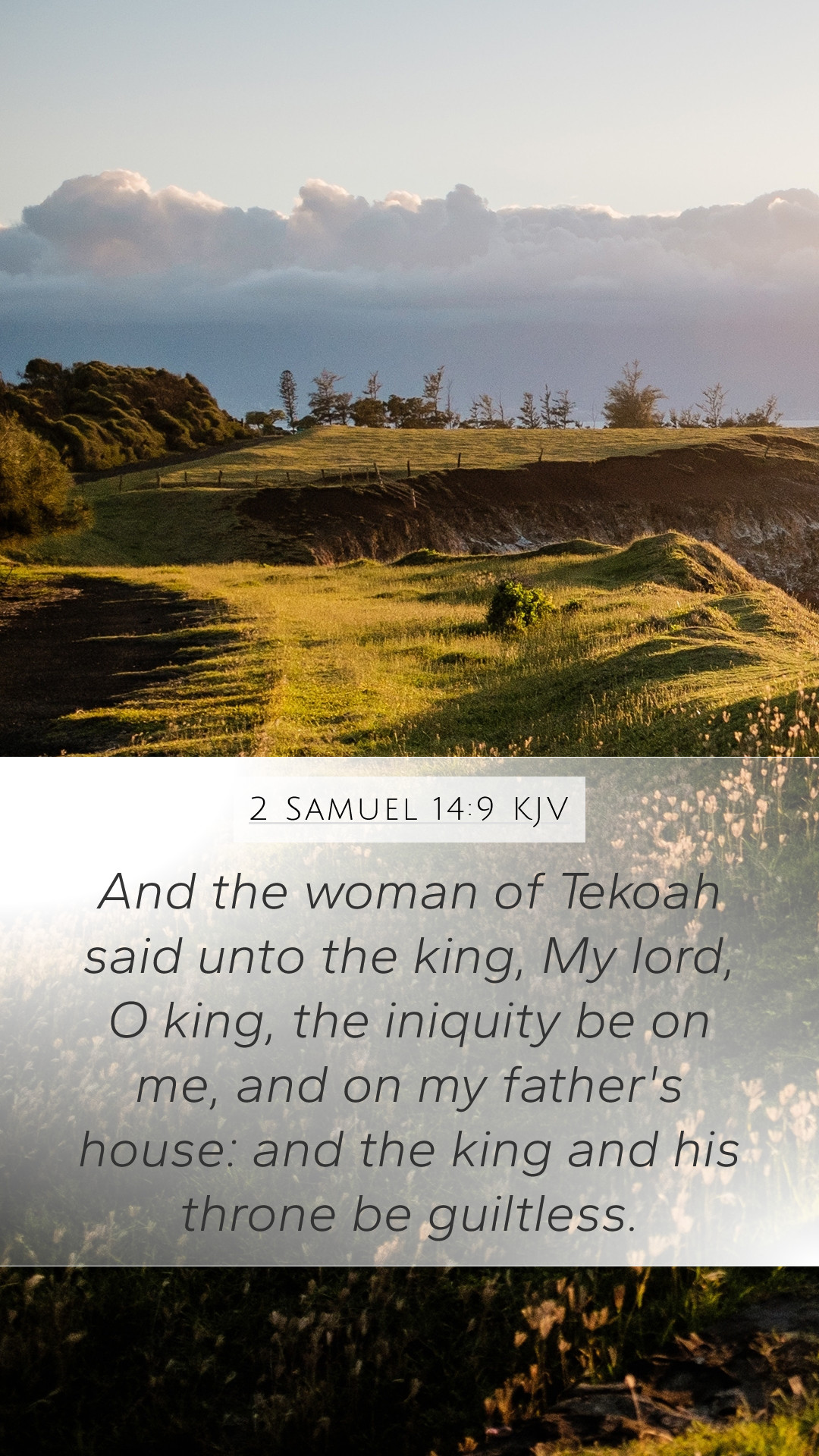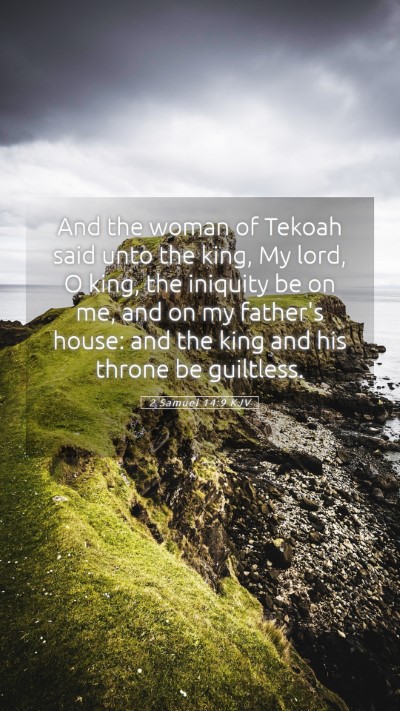Understanding 2 Samuel 14:9
The verse 2 Samuel 14:9 states:
"And the woman of Tekoah said unto the king, My lord, O king, the iniquity be on me, and on my father's house: and the king and his throne be guiltless."
Summary of the Verse
This verse occurs in a pivotal moment when a wise woman from Tekoah speaks to King David, addressing sensitive issues regarding familial guilt and the consequences of sin. Her appeal is layered with deep emotions and insights into justice and mercy.
Analysis and Commentary
Reflecting on the insights from respected public domain commentaries, we can draw a more profound understanding of this scripture.
Matthew Henry Commentary
Matthew Henry highlights the role of the woman of Tekoah as a mediator seeking justice for her son. Her declaration of "the iniquity be on me" indicates her willingness to bear the blame, showcasing a self-sacrificial spirit. This reflects a theme within Scripture where mediators often take the burdens of others upon themselves.
Albert Barnes' Notes on the Bible
Albert Barnes interprets the woman's speech as an illustration of her shrewdness and wisdom. She skillfully appeals to the king's sense of justice while asserting that her own family bears the fault, urging David to reflect on his own judgment and the larger implications of injustice within the kingdom. Her words serve as an insightful commentary on personal accountability and the nature of leadership.
Adam Clarke's Commentary
Adam Clarke emphasizes the significance of the woman's plea for the king's protection and the societal implications of her situation. She points to the prevalence of sin and the need for grace in governance. Clarke's analysis suggests that the king’s decisions can have far-reaching effects, a reminder that rulers must navigate complicated personal and collective moral landscapes.
Key Themes in 2 Samuel 14:9
- Intercession and Mediation: The verse emphasizes the importance of interceding on behalf of others, reminding readers of the power of mediation in the pursuit of justice.
- Responsibility and Accountability: By accepting blame on behalf of her family, the woman illustrates the concept of communal accountability in sin and its effects on society.
- Divine Justice and Mercy: The call for the king’s guiltlessness highlights the balance between justice and mercy, foundational themes throughout the Scripture.
Cross References
- 2 Samuel 13:28-29 - The consequences of David’s family dynamics and the tragic outcomes of sin.
- 2 Samuel 14:1-4 - The context leading to the wise woman coming before David, showcasing her wisdom.
- Proverbs 21:15 - The joy of a just king and the implications of justice in ruling.
Applying Bible Verse to Daily Life
This passage encourages individuals to reflect on their roles as mediators within their communities and families. It invites believers into a deeper understanding of accountability, urging them to take ownership of their actions while also extending grace to others.
Conclusion
In conclusion, 2 Samuel 14:9 serves as a profound reminder of the complexities of justice, mercy, and leadership. Both personal and communal responsibilities are highlighted, offering rich insights for those engaging in Bible study and seeking to grasp the meaning of Bible verses. For further understanding, engaging with various Bible study resources can enhance one’s appreciation of these themes, proving invaluable in online Bible study and group discussions.


